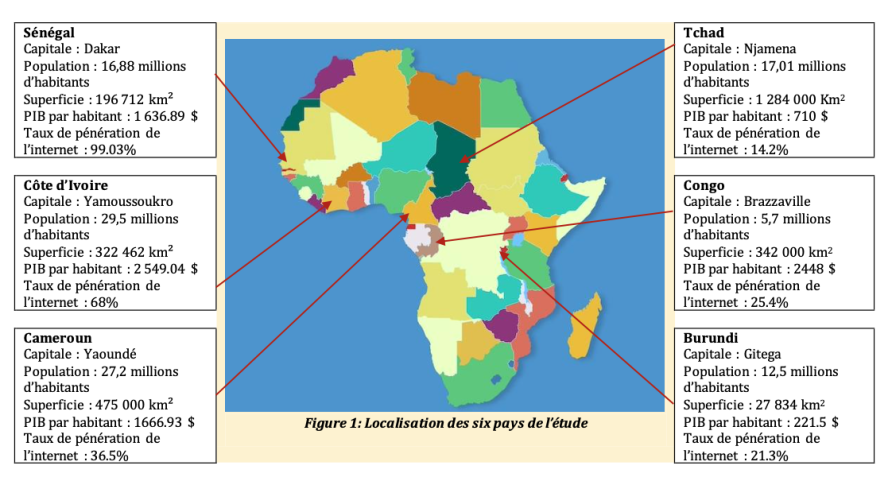
With the growth of the information society, the use of the internet and digital tools for educational, professional and social purposes has increased considerably in Africa, as elsewhere in the world; a situation particularly boosted in the context of the health crisis caused by the COVID-19 pandemic. However, although Africa has the highest Internet growth rate in the world (20% per year), freedom of expression, access to information, and freedom of assembly and association on the internet – to mention just a few examples – are far from being respected on the continent.
So, in an effort to help operationalise the UN Human Rights Council resolution of 5 July 2012, which states that "the rights enjoyed by people offline must also be protected online," and based on the Internet Rights and Freedoms Index (IRFI) developed in 2017 by PROTEGE QV, organisations and independent experts from six Sub-Saharan African countries that share French as one of their national languages (Burundi, Cameroon, Chad, Congo, Ivory Coast and Senegal) have set about proposing an approach for assessing the level of respect for human rights online by their governments..
Based on the reality of the six above-mentioned countries, this work has led to the development and evaluation of the African Index of Internet Rights and Freedoms (AIIRF), backed by the 13 key principles of the African Declaration on Internet Rights and Freedoms (www.africaninternetrights.org) adopted on 4 November 2016 by the African Commission on Human and Peoples' Rights in Banjul (Gambia).
This policy brief summarises the results of research conducted in 2023 with the support of a subgrant from the Association for Progressive Communications (APC), funded by the Swedish International Development Cooperation Agency (Sida). Contributors to the study were: Jean Paul Nkurunziza for Burundi, Romeo Mbengou for the Republic of Congo, Salyou Fanny for Ivory Coast, Ababacar Diop for Senegal, Amadou Tidjani for Chad and Sylvie Siyam, Lionelle Tchingoua, Avis Momeni and Serge Daho for Cameroon. Celestin Sikube acted as consultant statistician and economist.